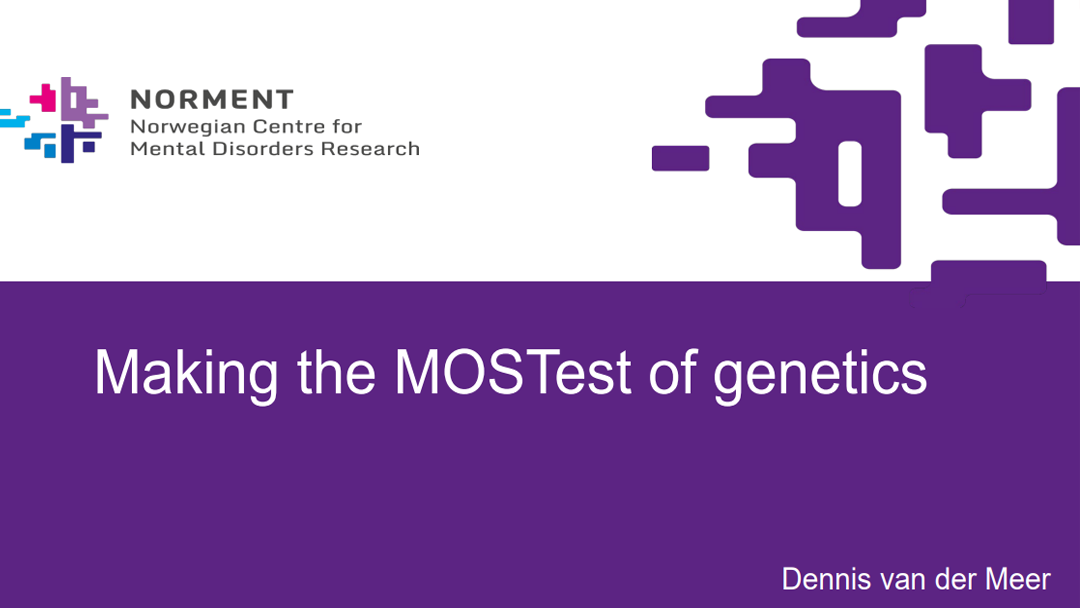Dennis van der Meer
Assistant professor at Maastricht University
and researcher at University of Oslo
Assistant professor at Maastricht University
and researcher at University of Oslo
Brain and behavioural measures related to mental illness have complex genetic architectures, involving many common polymorphisms with small individual effects, challenging psychiatric genetic research. Given the distributed nature of genetic signal across brain regions, and high levels of pleiotropy across mental disorders, joint analysis of sets of neuroimaging or mental health measures in a multivariate statistical framework provides a way to substantially enhance discovery of genetic markers with current sample sizes.
In this presentation, I will introduce the Multivariate Omnibus Statistical Test (MOSTest), with an efficient computational design enabling rapid and reliable permutation-based inference. I will provide an overview of findings from a series of studies applying MOSTest to data from tens of thousands of individuals from large population cohorts, enabling the discovery of thousands of genetic markers associated with a range of traits. I will further illustrate how the enhanced statistical power achieved through joint analysis of brain and behavioural measures can be leveraged to improve genetics-based prediction of mental disorders in clinical cohorts. As such, these multivariate approaches can significantly contribute to achieving the goals of environMENTAL.
In this presentation, I will introduce the Multivariate Omnibus Statistical Test (MOSTest), with an efficient computational design enabling rapid and reliable permutation-based inference. I will provide an overview of findings from a series of studies applying MOSTest to data from tens of thousands of individuals from large population cohorts, enabling the discovery of thousands of genetic markers associated with a range of traits. I will further illustrate how the enhanced statistical power achieved through joint analysis of brain and behavioural measures can be leveraged to improve genetics-based prediction of mental disorders in clinical cohorts. As such, these multivariate approaches can significantly contribute to achieving the goals of environMENTAL.


